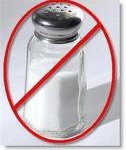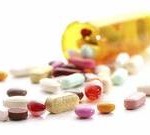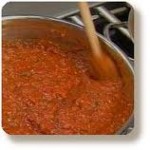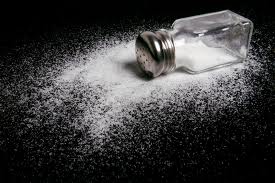Sodium is a very valuable component of your daily diet. Everyday, you have to take in not less than 1,500 milligrams and no more than 2,300 milligrams of this compound. It is a valuable component in maintaining blood pressure. Sodium retains water in your blood. If you have too much additional water in your blood vessels, then your blood pressure will surely elevate. It also retains water in your tissues. This is why you gain weight when there’s too much sodium in your diet.
You should be careful of your daily sodium intake. It is already present naturally in most foods so if the food is processed more, there will be an increase in the amount of sodium. The problem these days is that more and more people are going over the maximum daily amount of sodium. This is because of all the processed foods that they consume. They just couldn’t help it because they see processed foods as the answer to their busy lifestyle. These days, there are appeals to food manufacturers to lessen the amount of sodium that they place in their products.
If you always have high amount of salt in your diet, you are prone to developing hypertension or elevated blood pressure. If you have a family history of hypertension, then you should reduce your daily sodium intake while you still have a normal blood pressure. Here are some ways on how you can lower your daily sodium intake:
1. No table salt/condiments or use rock salt
 One effective way to reduce daily sodium intake is to remove the table salt from the table. This lessens the temptation to add more salt to your food. Sometimes, soy sauce and fish sauce are always on the table. These also have high sodium content. If you have to use salt in your cooking, you can just use rock or coarse salt instead of refined salt. Rock salt has less concentrated amount of sodium.
One effective way to reduce daily sodium intake is to remove the table salt from the table. This lessens the temptation to add more salt to your food. Sometimes, soy sauce and fish sauce are always on the table. These also have high sodium content. If you have to use salt in your cooking, you can just use rock or coarse salt instead of refined salt. Rock salt has less concentrated amount of sodium.
2. Go natural
 Processed foods are loaded with sodium. Avoiding any of them can help you reduce daily sodium intake. Sodium is often used as a preservative, so even cereals and microwave dinners have increased amount of sodium..
Processed foods are loaded with sodium. Avoiding any of them can help you reduce daily sodium intake. Sodium is often used as a preservative, so even cereals and microwave dinners have increased amount of sodium..
3. Check labels
 Whenever you go to the grocery store, always make it a habit to check the labels of what you buy. This makes you knowledgeable of the sodium content of what you buy. This makes you vigilant in making sure that your daily sodium intake is reduced.
Whenever you go to the grocery store, always make it a habit to check the labels of what you buy. This makes you knowledgeable of the sodium content of what you buy. This makes you vigilant in making sure that your daily sodium intake is reduced.
4. Use herbs
 Umami is the delectable taste that everyone looks for in what they eat. Once this is satisfied, you become happy with your meal. Herbs and spices help you get that taste that you want. They enhance the flavor of the main ingredients in your cooking. Use these gifts of nature to reduce your daily sodium intake.
Umami is the delectable taste that everyone looks for in what they eat. Once this is satisfied, you become happy with your meal. Herbs and spices help you get that taste that you want. They enhance the flavor of the main ingredients in your cooking. Use these gifts of nature to reduce your daily sodium intake.
5. Check medications
 Medications also have sodium in them. This is to lengthen the effects of the medication. If you want to make sure about the amount of sodium in your medications, ask your doctor to be aware of what medicine has more sodium. They could then prescribe an alternative that has lessen sodium so that you can lower your daily sodium intake.
Medications also have sodium in them. This is to lengthen the effects of the medication. If you want to make sure about the amount of sodium in your medications, ask your doctor to be aware of what medicine has more sodium. They could then prescribe an alternative that has lessen sodium so that you can lower your daily sodium intake.
6. Re-invent recipes
 If your grandmother or mother has passed down recipes to you, and you find out just how much sodium they put in them, you could tweak those recipes in to having lesser amount of sodium. This can absolutely help in lowering your daily sodium intake. And you could still pass the recipe down to the next generation—only this time, it has lower sodium content.
If your grandmother or mother has passed down recipes to you, and you find out just how much sodium they put in them, you could tweak those recipes in to having lesser amount of sodium. This can absolutely help in lowering your daily sodium intake. And you could still pass the recipe down to the next generation—only this time, it has lower sodium content.
7. Make your own sauces
 Making your own sauces helps you regulate the amount of sodium that you incorporate into them. Bottled sauces or instant sauces have more sodium because they have to stay in grocery shelves for a long time. Sodium preserves the ingredients in these sauces.
Making your own sauces helps you regulate the amount of sodium that you incorporate into them. Bottled sauces or instant sauces have more sodium because they have to stay in grocery shelves for a long time. Sodium preserves the ingredients in these sauces.
8. Cook your own food
 If you choose to cook your own meals, then you have to power to regulate the amount of sodium in your food. You could just make your own potato chips instead of getting those that come in bags. Don’t make it a habit to have instant everything during mealtime. This way, you could very well reduce your daily sodium intake and be healthier.
If you choose to cook your own meals, then you have to power to regulate the amount of sodium in your food. You could just make your own potato chips instead of getting those that come in bags. Don’t make it a habit to have instant everything during mealtime. This way, you could very well reduce your daily sodium intake and be healthier.
9. No cured meats
 Cured meats are notorious with the amount of sodium used on them. They may be very delicious because of the concentrated flavors, but think about how concentrated the sodium is in every bite, too. Avoid cured meats and you can lower your daily sodium intake.
Cured meats are notorious with the amount of sodium used on them. They may be very delicious because of the concentrated flavors, but think about how concentrated the sodium is in every bite, too. Avoid cured meats and you can lower your daily sodium intake.
10. No fast foods
 It may be convenient for you to buy your food from fast food restaurants but it isn’t ideal for your health. So much sodium is present in fast food products.
It may be convenient for you to buy your food from fast food restaurants but it isn’t ideal for your health. So much sodium is present in fast food products.
Work with your doctor to reduce your daily sodium intake. This way, your health could be monitored. Balance should be maintained in your body to assure your optimal health.
